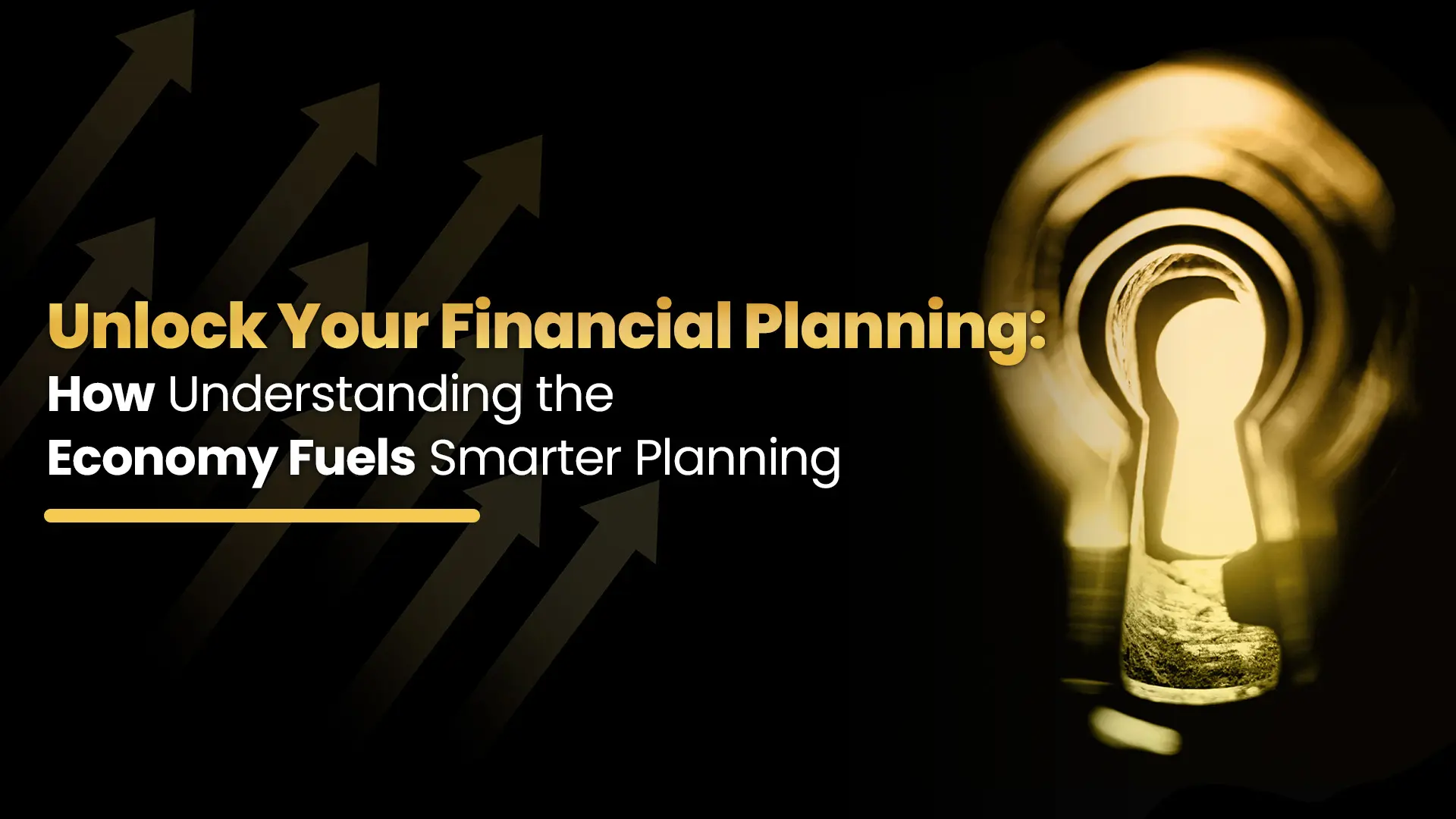We often feel that we are living in a bubble when it comes to our personal finances, including our income, expenses, and savings goals. But the truth is that the state of the economy as a whole is closely linked to our financial well-being.
-
 Neo Finance
Neo Finance
- April 23, 2025
- 5 min Read
We often feel that we are living in a bubble when it comes to our personal finances, including our income, expenses, and savings goals. But the truth is that the state of the economy as a whole is closely linked to our financial well-being. Ignoring economic fluctuations is like trying to steer a ship without knowing the tides or the weather forecast. Gaining a better understanding of the current state of the economy will help you make better financial decisions and face the future with greater confidence.
How precisely does this macro-level understanding apply to your personal financial strategy, then? Now let’s get started:
Forecasting Changes in Interest Rates
The Economy: In order to reduce inflation, central banks frequently raise interest rates when the economy is expanding rapidly. On the other hand, they typically cut rates to encourage borrowing and spending during economic downturns.
Your Money: Knowing this can help you make wise borrowing and saving decisions.
Borrowing: It may be prudent to lock in fixed rates on mortgages or other loans as soon as possible if interest rates are predicted to increase. On the other hand, you might postpone refinancing or cautiously explore variable-rate options if rates are predicted to decline.
Saving: Higher interest rates can mean better returns on savings accounts and fixed-income investments like bonds. Lower rates might prompt you to explore other investment avenues.
Paying more than you realize
The Economy: Over time, inflation, or the rate at which prices for goods and services rise, reduces the purchasing power of money.
Your Finances: Realistic financial planning requires an understanding of inflationary trends.
Budgeting: When making and modifying your budget, you must account for prospective rises in the cost of living. Next year, something that costs $100 now could cost $105 or more.
Savings Objectives: To retain their true value, your savings objectives must exceed inflation. If inflation is high, saving a set amount might not be sufficient.
Investments: In the long run, some asset classes—such as stocks and real estate—have provided superior protection against inflation than cash.
Identifying Trends in the Job Market:
The Economy: While recessions frequently cause job losses, economic growth usually results in the creation of new jobs and lower unemployment rates.
Your financial security is largely dependent on your work status.
Income Planning: Your career choices, salary expectations, and job security can all be impacted by your knowledge of how strong the labor market is in your sector.
Emergency Fund: Having a sizeable emergency fund is even more important during uncertain economic times and when job losses are a possibility.
Career Development: Changes in the economy may lead to a need for new abilities. You can improve your employability and direct your professional development by keeping up with these trends.

Recognizing the Risks and Opportunities of Investments
The Economy: Certain investment types may be more advantageous during particular economic periods. For instance, stocks may do well during periods of robust growth, but more cautious investments may be favored during uncertain times.
Your Money: You can make better investment choices if you have a basic understanding of economic cycles.
Asset Allocation: Depending on your economic outlook, you may decide to rebalance your portfolio, possibly leaning more defensively during recessions and toward growth assets during expansions.
Long-Term Investing: Gaining insight into past economic patterns can help you assess market volatility and long-term growth prospects.
Adapting to Government Policies
The Economy: Government policies, such as tax changes, stimulus packages, and regulations, can have a significant impact on the economy and, consequently, your personal finances.
Your Finances: Staying aware of potential policy changes can help you adjust your financial plan proactively.
Tax Planning: Changes in tax laws can affect your income, investments, and retirement savings.
Benefit Programs: Understanding eligibility criteria for government support programs can be crucial during economic hardship.
Although you have no control over the overall state of the economy, you can greatly improve your financial planning by learning about its dynamics. You may make more intelligent choices regarding borrowing, saving, investing, and managing your overall financial well-being by keeping up with changes in inflation, interest rates, job market trends, investment environments, and governmental regulations. It involves recognizing the significant impact of the economic environment on determining your financial future and stepping away from a purely individualistic perspective on your finances. Thus, pay attention to the economic news, conduct research, and arm yourself to handle the financial waters with more insight and understanding.
FAQs
GDP growth, inflation rate (CPI), unemployment rate, interest rates set by the central bank, and consumer confidence indices are good starting points.
Review your budget, savings goals, debt management strategies, and investment portfolio in light of the current and expected economic conditions. Adjust your plan as needed.
If you’re unsure how economic conditions might impact your specific financial situation or if you’re making significant financial decisions, consulting a financial advisor is always a good idea.
A strong job market provides more income security and potential for career advancement. Understanding industry trends can guide your career development and inform your emergency fund needs in case of job loss during economic downturns.
Different investments are preferred during different economic periods. You can manage risk in your portfolio and modify your asset allocation by having a solid understanding of economic cycles.
Reputable financial news outlets, government economic reports, and publications from research institutions are good sources. Be wary of overly sensationalized or biased information.


